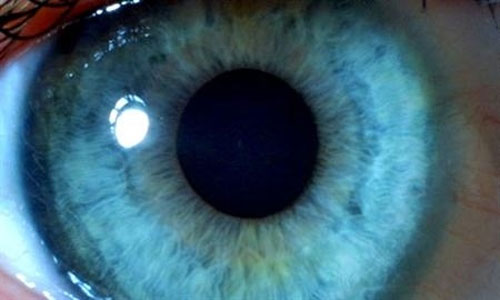Blindness with human embryonic stem cells
Blind blind patients in the UK will participate in the first trial of eye treatment with human embryonic stem cell therapy in Europe.
Surgeons in the UK will conduct the first trial in patients with human embryonic stem cell therapy to make it a treatment approved by European regulators.
12 patients with incurable eye diseases are macular dystrophy Stargardt , one of the main causes of blindness in young people, will be injected with cells by surgeons at London Eye Eye Hospital. into the eyes.
In the UK, this treatment has been clinically tested and safety tested, approved by UK authorities in December last year. This test will lead to persuading approval in any country in Europe.
Health careers hope that by injecting healthy retinal cells into the patient's eye, it will reduce or reverse the effects of the disease. What is still controversial is because the retinal cells (RPE) used here are human embryonic stem cells.
Patients in the UK trial will receive between 50,000 and 200,000 cells in the back of the retina via a small needle that is carried out for about an hour. Only patients who have a prospect can be admitted to the trial.

Injected retina cells will help your eyes look back to normal (Photo: guardian)
Stargardt disease is an inherited disorder caused by vision loss through the eruption of retinal pigment epithelial cells in the center of the retina where the eye can see the images in the sharpest way.
The loss of RPE cells usually begins between the ages of 10 and 20 and leads to rods and cones sensitive to light in the eyes die. This eventually causes loss of vision and even blindness.
When the treatment work is successfully conducted, replacement RPE cells will develop and eventually restore the retina to a healthy state that can support the light-sensitive cells needed for eye.
'There are really potential prospects when people with retinal disorders cause blindness, including Stargardt's disease and age-related macular degeneration, which may benefit in the future from retinal cell transplantation. ' , James Bainbridge retinal surgeon at Moorfields Hospital and Ophthalmology Institute said.
Last year, Geron also began a trial of stem cell therapy to treat spinal cord injuries. Doctors hope that injecting stem cells directly into the spine will repair damaged nerve cells to help paralyzed people recover some movement.
- 10 ways stem cells promote medical development
- Successfully created kidney cells from stem cells
- Human embryonic stem cells and vision of the elderly
- The man creates embryonic stem cells
- For the first time successfully created stem cells from human skin
- Mapping the first gene of 5hmC molecule in human embryonic stem cells
- New method to create human stem cells
- Going to test human embryonic stem cell therapy
- American embryo breeds hybrid half-human half-chicken
- Treatment of deafness by stem cell method
- What are stem cells? How advanced is medicine in this area?
- Transform human skin cells into brain cells
 Green tea cleans teeth better than mouthwash?
Green tea cleans teeth better than mouthwash? Death kiss: This is why you should not let anyone kiss your baby's lips
Death kiss: This is why you should not let anyone kiss your baby's lips What is salmonellosis?
What is salmonellosis? Caution should be exercised when using aloe vera through eating and drinking
Caution should be exercised when using aloe vera through eating and drinking